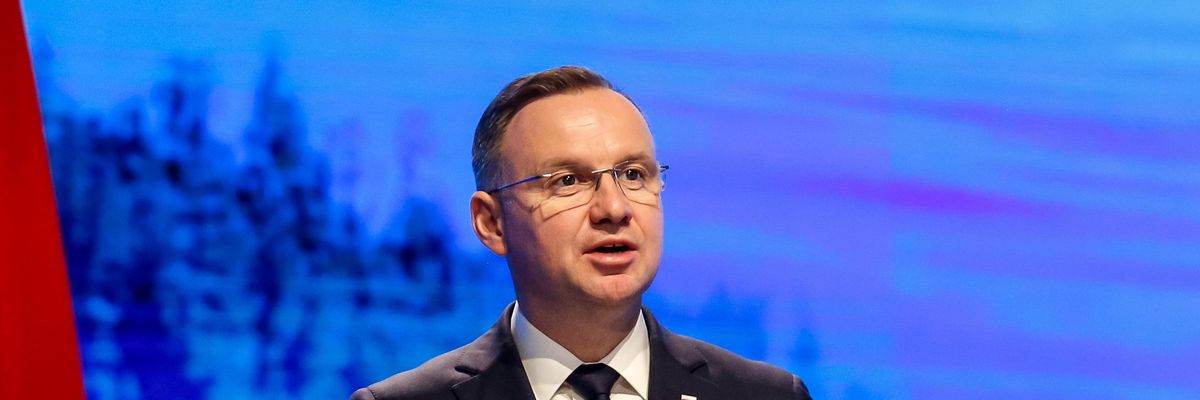Polish President Andrzej Duda on Wednesday said the missile that killed two people in Poland the previous day was likely fired by Ukrainian defense forces as they attempted to respond to a massive barrage of Russian airstrikes.
"Ukraine's defense was launching their missiles in various directions and it is highly probable that one of these missiles unfortunately fell on Polish territory," Duda said, calling the incident an "unfortunate accident."
"There is nothing, absolutely nothing, to suggest that it was an intentional attack on Poland," he added.
NATO Secretary-General Jens Stoltenberg echoed that assessment at a press conference Wednesday following an emergency meeting of alliance ambassadors.
"The stakes are too high for us to sit idly by as the catastrophe spreads and the costs--and the risks--keep growing."
"Our preliminary analysis suggests that the incident was likely caused by a Ukrainian air defense missile fired to defend Ukrainian territory against Russian cruise missile attacks," Stoltenberg told reporters. "But let me be clear: this is not Ukraine's fault. Russia bears ultimate responsibility as it continues its illegal war against Ukraine."
The latest findings from NATO and Polish officials contradict the earlier claim by an unnamed U.S. intelligence official that the missile, which landed in a Polish village about four miles from the Ukrainian border, was fired by Russia--an assertion that on Tuesday intensified fears of a devastating escalation of the war.
Speaking to reporters at the G20 summit in Indonesia ahead of the emergency NATO meeting, U.S. President Joe Biden said late Tuesday that it is "unlikely" that the missile "was fired from Russia."
Foreign policy analysts and peace advocates have warned for months that the longer Russia's war on Ukraine lasts, the greater the chance that it will spread beyond Ukraine's borders and potentially spark a full-blown conflict between Russia and NATO.
Katrina vanden Heuvel, editor and publisher of The Nation, wrote in a column for The Washington Post on Tuesday that "the stakes are too high for us to sit idly by as the catastrophe spreads and the costs--and the risks--keep growing."
"It might be time to give diplomacy a chance in the Ukraine war," vanden Heuvel argued, citing recent comments by Gen. Mark Milley, chairman of the Joint Chiefs of Staff.
In a speech earlier this month, Milley offered U.S. casualty estimates for the war and said that "when there's an opportunity to negotiate, when peace can be achieved: seize the moment."
Vanden Heuvel emphasized that Milley is hardly "a peace activist or a squishy liberal" and suggested his comments signal a potential shift in the Biden administration's approach to the war.
"Despite public disavowals, the White House has tentatively been opening the door to negotiations," vanden Heuvel pointing to reports that Biden administration officials have privately urged Ukraine's leaders to show a willingness to engage in peace talks with Russia.
Trita Parsi of the Quincy Institute for Responsible Statecraft argued in an MSNBC column on Tuesday that the Biden White House is "right to pivot toward diplomacy in the Russia-Ukraine war."
"Recent reporting has revealed that national security adviser Jake Sullivan earlier this month started discussions with Ukraine on ending the conflict while nudging Kyiv to show greater openness to diplomacy," Parsi observed. "Ukraine 'must show its willingness to end the war reasonably and peacefully,' U.S. officials reportedly relayed to Kyiv."
"As a direct result of Sullivan's efforts," Parsi added, "President Volodymyr Zelenskyy outlined five conditions for negotiations last week that no longer included the non-starter demand that Russian President Vladimir Putin be out of power before talks can take place."




